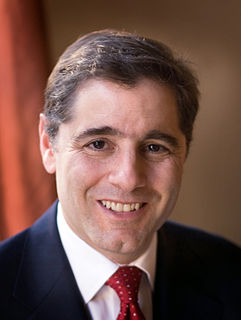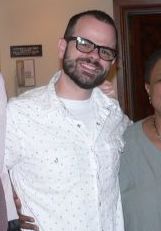A Quote by Adam Lashinsky
A 'free and open' Internet has been an article of faith in and around Mountain View, Menlo Park, and its environs for two decades.
Related Quotes
Beginning in the Clinton administration, there was, for nearly two decades, a broad bipartisan consensus that the best Internet policy was light-touch regulation - rules that promoted competition and kept the Internet 'unfettered by federal or state regulation.' Under this policy, a free and open Internet flourished.
I'm not sure Riot Grrrl would have been as big a deal if the Internet had existed back then. Because there's so much stuff on the Internet. People could have been like, oh, whatever, I'm going to go look at pictures of Barbie vaginas, you know what I mean? There's so many different things on the Internet, you read one article and then you read something linked off that article and you go down the rabbit hole.
Congress needs to send a strong signal that direct communication with the leader of the free world is a privilege, particularly for a regime that has been as hostile as Iran has been towards America for more than three decades. President Rouhani needs to take these two simple steps to demonstrate good faith before any further discussions.
We have to ensure free and open exchange of information. That starts with an open internet. I will take a backseat to no one in my commitment to network neutrality. Because once providers start to privilege some applications or websites over others then the smaller voices get squeezed out and we all lose. The internet is perhaps the most open network in history, and we have to keep it that way.
I have been a strong supporter of a free and open Internet and have indicated this both prior to and subsequent to being sworn in as chairman of the F.C.C. I believe it is important to take concrete and reasonable steps to protect the freedom of users and entrepreneurs and businesses both small and large on the Internet.
I think there's pressure when you're a pastor that you have to have all the answers, and if you don't, your faith is built on sand. For me, faith is about believing in those things you can't see and at times can't understand. I've been really blessed to have people who are open to that and stick around. Not everyone does stick around, though.
David Harrington asked me to write a piece for Kronos Quartet for a performance in Prospect Park, Brooklyn. I live just two blocks from the park and spend many mornings running around it. The park for me symbolizes much of what I love about New York, especially the stunning diversity of Brooklyn with its myriad cultures and communities.
The rise of a ubiquitous Internet, along with 24-hour news channels has, in some sense, had the opposite effect from what many might have hoped such free and open access to information would have had. It has instead provided free and open access, without the traditional media filters, to a barrage of disinformation.



































